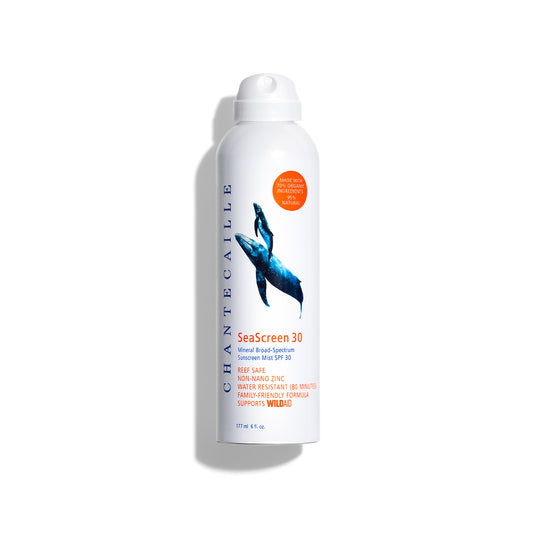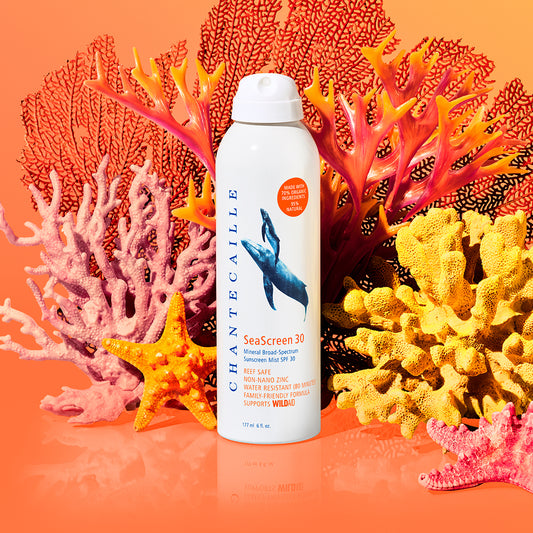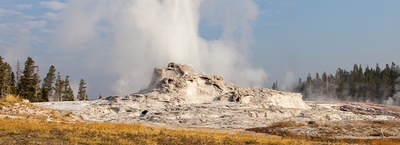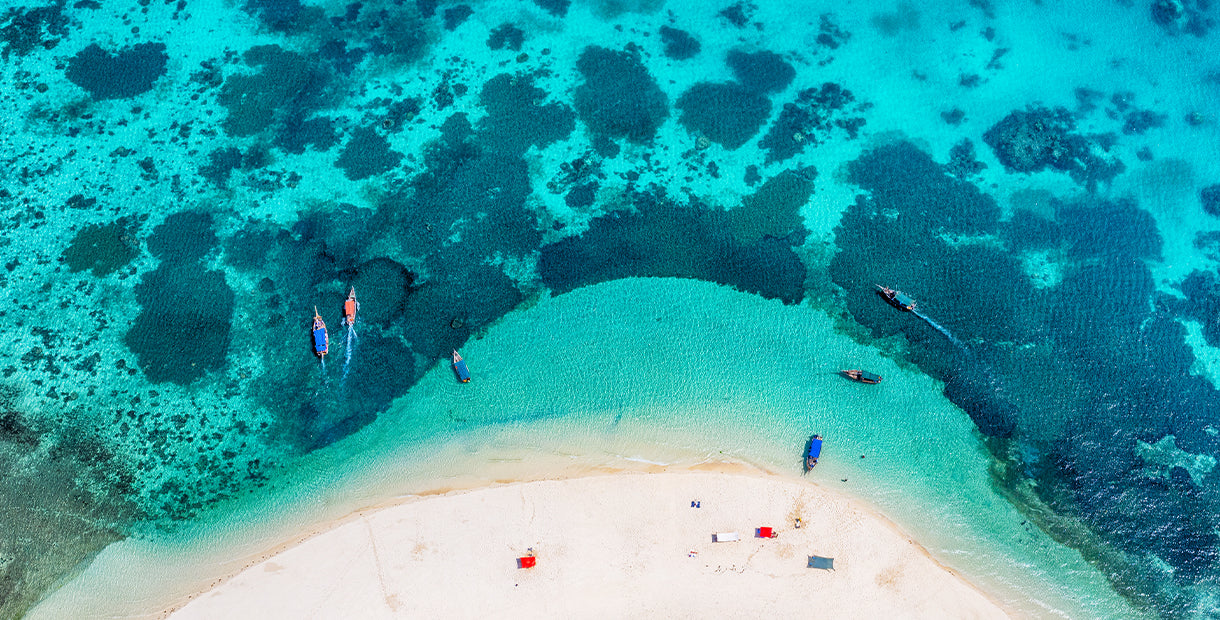
Aerial view of a reef off the Tanzania coast
How Our SeaScreen 30 is Helping to Save a Coral Reef in Zanzibar
This vital but vulnerable reef off of Tanzania—and the sea life it supports—is getting the protection it needs thanks to WildAid Marine.
The name Zanzibar conjures golden-sand beaches, spices like clove, nutmeg, cardamom and cinnamon, and a diverse culture of Swahili, Arab and Indian influences. In the aqua waters around these tropical islands off the coast of Tanzania in East Africa, traditional handmade wooden fishing boats, many of them with a single white fluttering sail, ply the aqua waters of the coastline dotted with fishing villages and mangrove forests, while offshore lies some of Africa’s most vibrant coral reefs that draw divers from all over the world.
Like so many coastal areas where fishing is both the key livelihood and main supply of dietary protein, however, there is a tension emerging between humans and an ecosystem that has grown less resilient due to a mix of population growth, overfishing, pollution, tourism and climate change. In one conservation hotspot—Pemba Channel, which runs between Pemba Island and mainland Tanzania—efforts to restore balance, supported by our partners at WildAid Marine, are working to prevail in a fight against time.
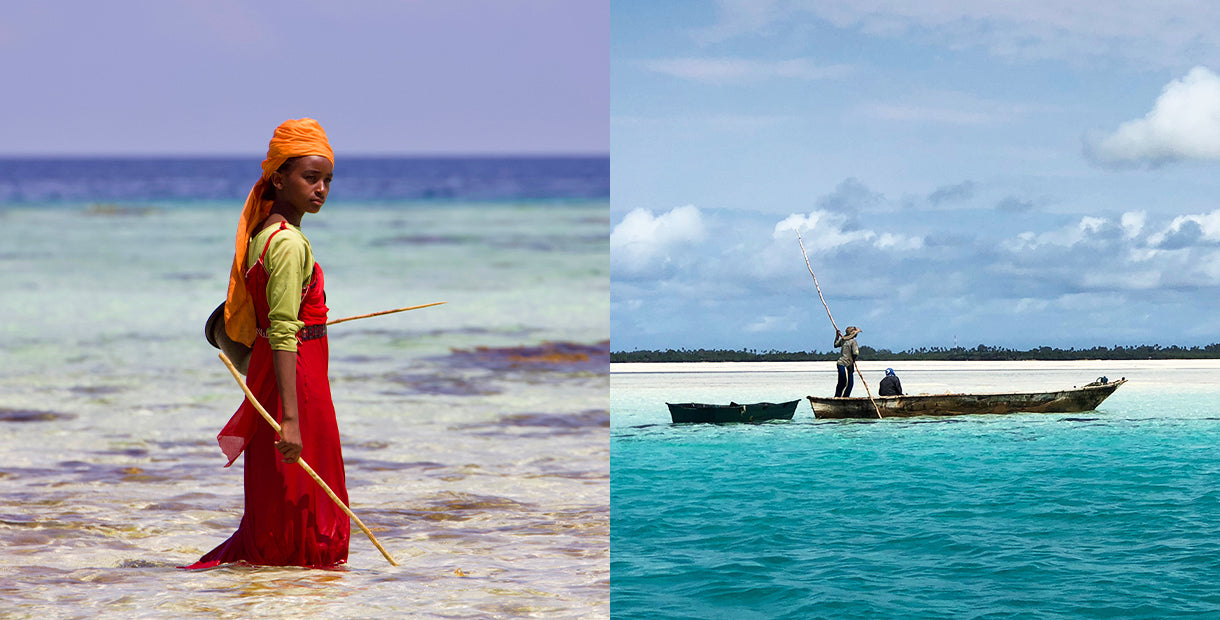
A woman fishing near the Pemba channel; a local fishing boat
LIFE IN THE PEMBA CHANNEL
Pemba Island—Zanzibar’s second largest in the archipelago—has a population of more than 400,000, including thousands of fishing families. The Pemba Channel, while a busy waterway, is also famous for its tropical marine habitats including coral reefs, seagrass meadows, and mangrove forests. Over the years, the Zanzibar government has made inroads protecting this fragile environment, and the Pemba Channel Conservation Area (known as PECCA), on the west side of Pemba Island, is double the size of any other conservation area in Zanzibar.
“PECCA is home to some of the deepest and most diverse coral reefs in East Africa,” says Meaghan Brosnan, the director of WildAid’s Marine Program. In addition to its great biodiversity, she says, it’s also home to several endangered species, including four kinds of sea turtles, Indian Ocean humpback dolphins, the humphead wrasse, bumphead parrotfish, and blacktip reef sharks. PECCA also serves as a nesting site for the critically endangered hawksbill and endangered Green turtles.
Unfortunately, rampant illegal fishing and harmful fishing practices, such as the use of seine nets, are threatening the health of fish and endangered wildlife populations all around the area and “pushing the environment to its limits,” WildAid’s Brosnan says.
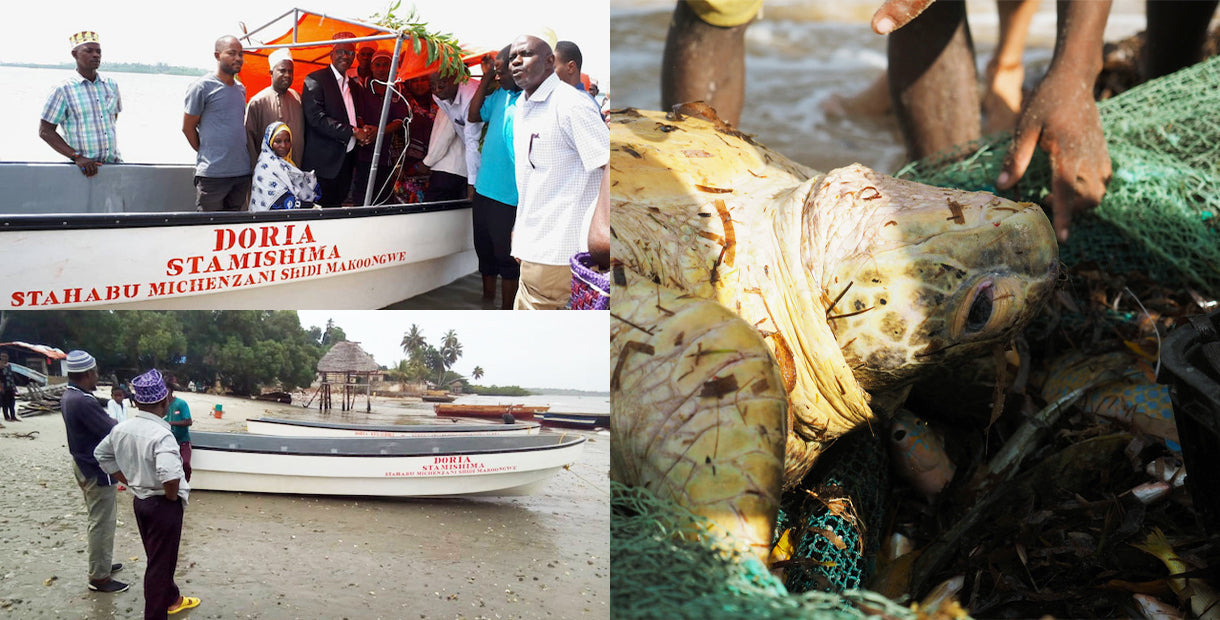
Patrol vessels sponsored by WildAid Marine, seine nets trap sea turtles and other marine life
TEAMING UP TO STOP ILLEGAL FISHING
The Marine division of WildAid—a conservation organization based in San Francisco—is involved in 7 global coastal conservation programs in The Bahamas, Palau, Cuba, the Galapagos, Indonesia, Coastal Ecuador, Gabon and Tanzania. While all of these countries are home to large marine protected areas (MPAs), the equivalent of national parks for the sea, more than half of the world’s MPAs lack the resources to protect the ecosystems and wildlife within them. WildAid helps to make the promise of MPAs real, supporting each partner to strengthen law enforcement and stop illegal fishing so wildlife can rebound. Ultimately this also results in sustainable economies for the local communities.
The Pemba Channel area is managed by Zanzibar’s Department of Fisheries Development (DFD), who work with several small community groups along the coast to monitor and enforce the rules of these protected fishing grounds. Historically, though, limited budgets, staff, training and equipment have hindered their ability to effectively respond to incidents of illegal fishing.
When WildAid Marine launched the Pemba Channel project in 2019 with their local partner Mwambao Coastal Community Network (MCCN), their survey discovered a lack of formal institutional training courses or standard operating procedures for fishery officers, rangers and beach recorders, Brosnan says. The staff also had no uniforms, binoculars, cameras, flashlights, first aid kits, VHF radios, or even logbooks.
WildAid Marine promptly raised $50,000 to buy two patrol vessels, which were delivered this past January. They also developed training materials to provide basic patrol training, which were also used by their local partner and DFD to train the Pemba Channel rangers and members of local fishing groups. Together, the training and patrol boats have stepped up enforcement in the channel, an important step in turning around the threat of illegal fishing in the region.
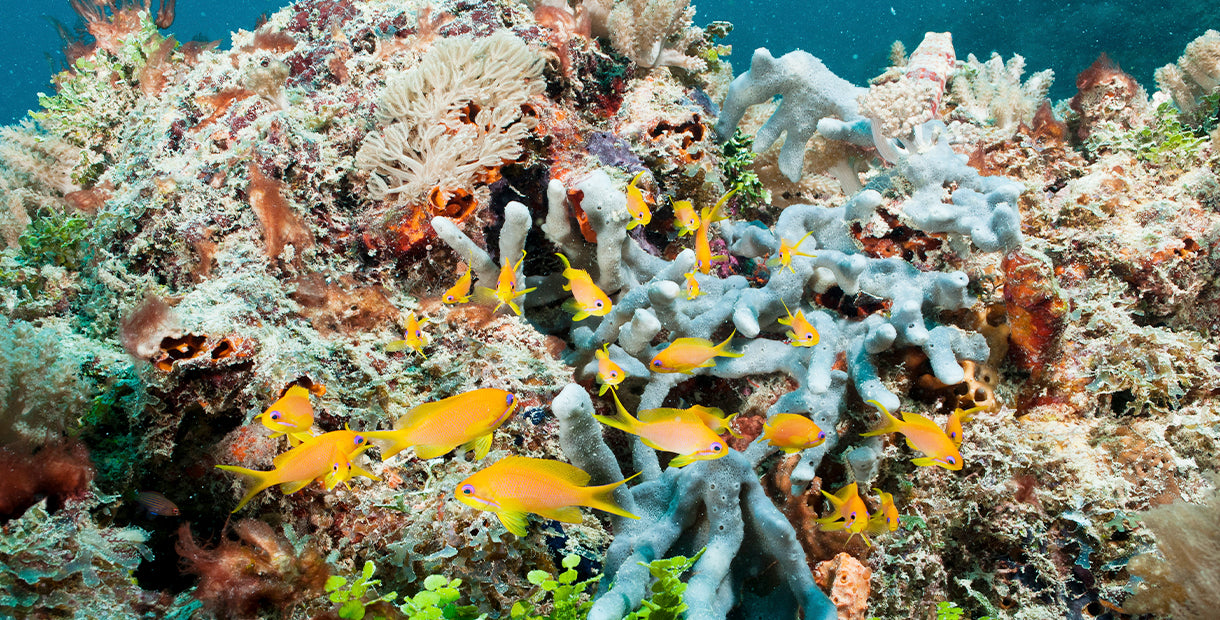
Coral reef in the Pemba Channel
WHAT MORE IS NEEDED
These initiatives so far are part of WildAid Marine’s 5-year Pemba Channel Marine Protection System Plan to build a complete enforcement system to protect the channel’s reefs. But patrolling coastal areas in search of illegal fishing can be dangerous business. “We believe that the safety of individuals tasked with conducting marine patrols is of paramount importance,” Brosnan says. “Therefore, these new patrol boats must be properly equipped with basic safety equipment, which can make all the difference in a life-or-death situation.”
In response, Chantecaille’s donation from our Seascreen 30 Mineral Broad-Spectrum SPF 30—which, incidentally, is a reef-safe formula—will go towards purchasing basic surveillance kits including binoculars, hand-held GPS units and digital cameras.
“We are so proud to help WildAid and their work with Marine Protected Areas,” Sylvie Chantecaille says. “With SeaScreen we are helping WildAid Marine to build the foundation of a complete enforcement system to protect the channel’s reef.”
Adds Brosnan, “While seemingly simple, these tools are critical for detection and documentation of violations as well as the proper capturing of evidence. We are deeply grateful for Chantecaille’s support, which allows us to provide these vital and highly effective safety tools.”
Shop This Story


